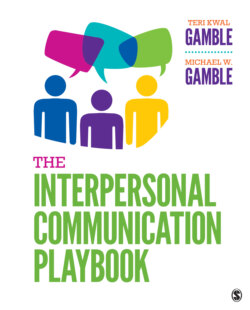Читать книгу The Interpersonal Communication Playbook - Teri Kwal Gamble - Страница 49
На сайте Литреса книга снята с продажи.
Diversity and Communication Style
ОглавлениеDeveloping cultural awareness, the ability to understand the role that cultural prescriptions play in shaping communication, is an asset. Intercultural ignorance too frequently slows our ability to create meaningful interpersonal relationships with people who are culturally different from us.
Whenever cultural variability influences the nature and outcomes of interpersonal communication, culture is having an effect. Learning about other cultures, including their systems of knowledge, belief, values, customs, and artifacts, facilitates person-to-person interaction. Every culture can be subdivided into co-cultures consisting of members of the same general culture who differ in some ethnic or sociological way from the dominant culture. In the United States, African Americans, Hispanic Americans, Japanese Americans, Korean Americans, the physically challenged, gay people, and the elderly are examples of co-cultural groups. To engage in effective interpersonal communication with members of these and other groups, it is important to enhance your knowledge of the norms and rules that characterize their interactions. Remember, the lessons taught to you by your culture are not necessarily the lessons others have been taught by theirs.
Among culture’s lessons are how to say hello and goodbye, when to speak and when to remain silent, how to behave when angry, how much eye contact to make when interacting, and how much gesturing and touching is appropriate. If culture guides behavior, we must make the effort to understand someone’s culture if we are to understand the person.15
Becoming culturally aware increases communication competence.
iStock.com/Idealnabaraj
When interacting with someone whose cultural background differs from yours, considering the following questions can improve your communication:
How do this person’s feelings about socialization differ from mine?
How does his or her concept of self differ from mine?
To what extent do our attitudes, values, and thinking processes differ?
To what degree is he or she more or less competitive than me?
In what ways does his or her use of nonverbal cues differ from mine?
